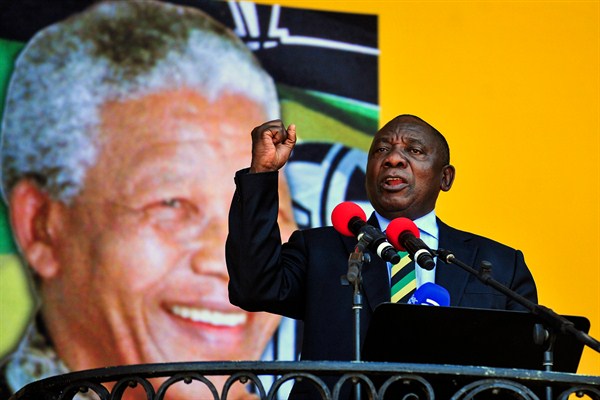Amid the drama last month of Jacob Zuma’s resignation as South African president and Cyril Ramaphosa’s subsequent inauguration, it was easy to overlook the resiliency of South Africa’s democracy during Zuma’s nine years in power, which were marked by poor governance, corruption and his authoritarian style. By the end, the political opposition, the judiciary, the media and the electorate all successfully exerted pressure on the ruling African National Congress to remove him. Zuma’s departure was a crisis for the ANC, but not for South Africa’s democratic institutions and the rule of law.
When it decided that he had to go, the ANC followed party and parliamentary procedure to the letter. Unlike the unexpected exit last year of long-time President Robert Mugabe in neighboring Zimbabwe, Zuma’s departure was no coup, either by the party or within the state. It is fair to say that in a country with lesser institutions and a weaker commitment to democracy, Zuma might instead have held on and even consolidated his power, following the path of Paul Kagame in Rwanda, Laurent Kabila and his son, Joseph, in the Democratic Republic of Congo, and Yoweri Museveni in Uganda.
Zuma’s poor performance as president of South Africa is widely acknowledged. At home and abroad, Zuma’s lack of leadership, coupled with a long list of credible allegations of corruption, generated unwarranted pessimism about the future of the country. South Africa’s democratic institutions, however, met Zuma at every turn. The courts blocked his initiatives that were incongruent with the human rights and civil rights guarantees of the constitution, among the most extensive in the world. The media and civil society doggedly exposed his political and personal misbehavior. Opposition political parties—and members of his own party, to an extent—resisted Zuma through their expert use of parliamentary procedure to ensure the delay, reconsideration and eventual revision of his agenda. Finally, the voters increasingly turned against the ANC, which has dominated South African politics since the end of apartheid.

